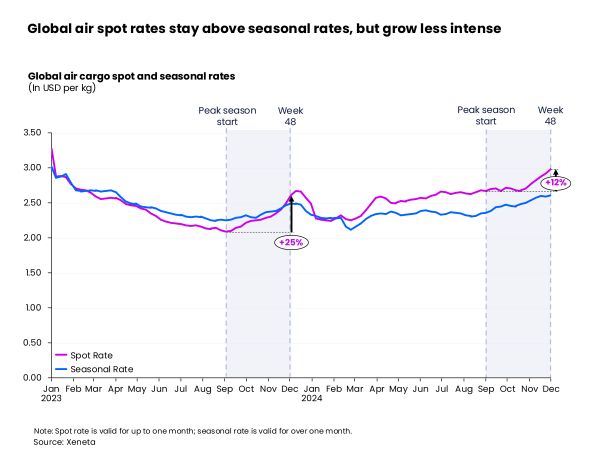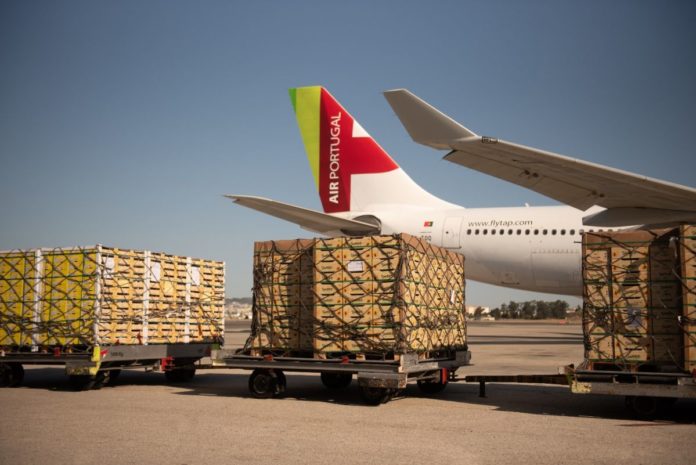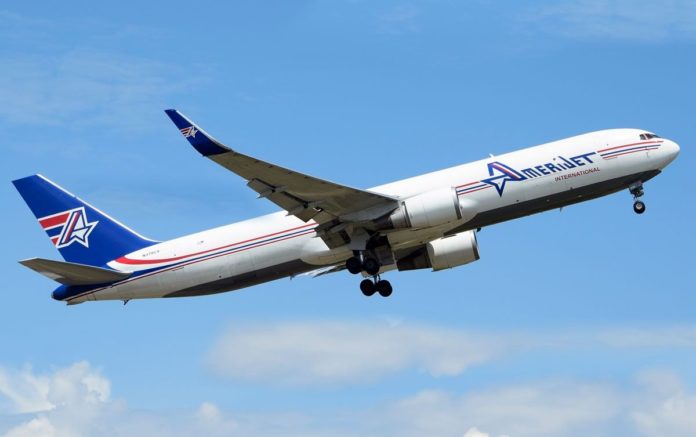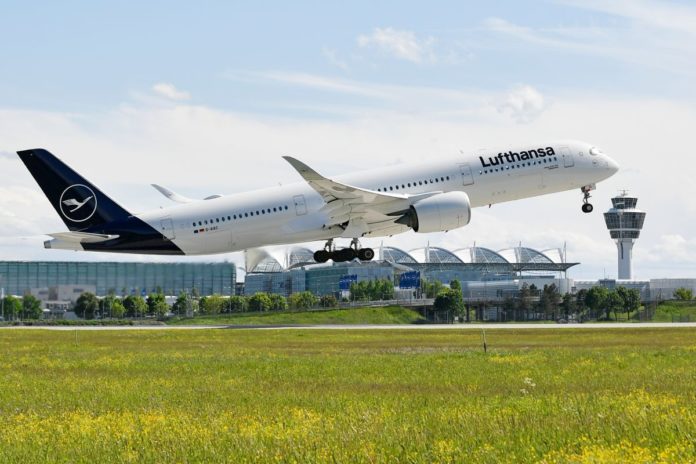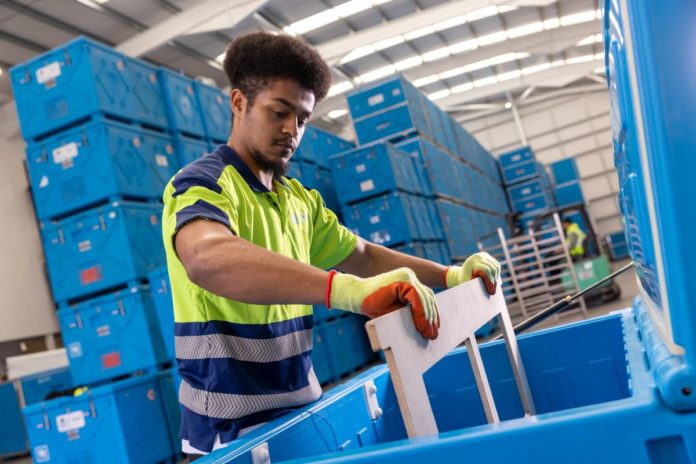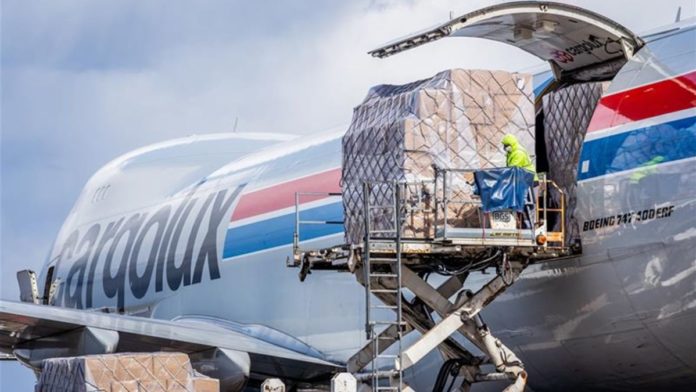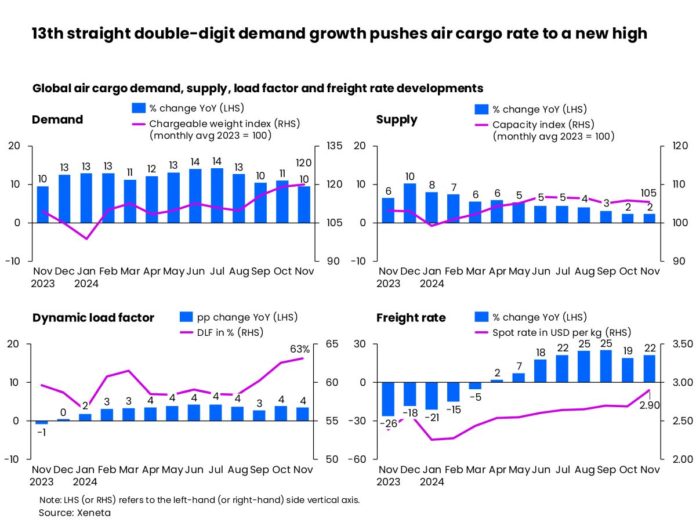TAP Air Cargo, a customer of the Skypallet optimisation program since October 2022, has now embedded it into its capacity optimization process by implementing an API integration between Skypallet and Champ’s cargo management solution, Cargospot Airline. This enables TAP Air Cargo staff to automatically transfer the air waybill data for flights from Cargospot to Skypallet for shipment evaluation and flight planning, including co-loadability checks and segregation. It also creates a single source of information for any later changes such as bookings, which can be quickly reflected in Skypallet. The carrier anticipates that it will reduce the time taken to plan and release a flight from a typical 15-30 minutes to a matter of seconds.
Fifty years for Florida freighter airline
Florida freighter operator Amerijet International Airlines is celebrating its 50th anniversary in December. Founded in 1974 by David Bassett as an air-taxi operator with a single leased airplane, today it operates 12 767 freighters serving the Caribbean and& Central America.
Its Miami Hub includes 235,600sq ft of dry warehouse and 38,000sq ft of cooler space as well as seven dedicated 767 aircraft parking positions.
Chief executive Joe Mozzali stated: “For a company to achieve a 50th year anniversary milestone is extremely impressive, especially in the dynamic Latin America air cargo market. This is a direct reflection of our resilience while providing value and service to customers and communities. We could not do what we do without our most valuable asset, our people. I want to thank our employees for their dedicated efforts as well as our customers for their loyal support.”
The company adds that scheduled service and charter revenue for the 11 months to November increased 18% and 39%, respectively.

Schiphol head of cargo moves on
Royal Schiphol Group head of cargo Joost van Doesburg is to leave his position in February to pursue interests outside the company, after just under two years in the post. His tenure included a turbulent time for the Dutch airport, with cuts in flight numbers due to slot shortages, IT issues and a generally unstable air cargo market. He is however credited with strengthening cargo’s position at Schiphol and improving the Cargonaut community system. Royal Schiphol Group said that “unjust defamatory allegations” had been made against and that it respected but regretted his decision.
The Group added that “business-related criticism of Schiphol has been made personal, resulting in media coverage. This has created an undesirable situation for him, which we deeply regret. The Schiphol Executive Team has always supported Joost. He is a dedicated professional who has consistently advocated for the interests of cargo at Schiphol.”
Lufthansa offers Munich/Sao Paulo link
Lufthansa Cargo offering a new passenger service from Munich to São Paulo, Brazil. The route is served three times a week by an Airbus A350. Flights depart in either direction on Mondays, Wednesdays and Fridays.
Takeover boosts Tower Cold Chain presence
Passive temperature-controlled container provider Tower Cold Chain says it can offer a vastly expanded network with three Centres of Excellence and 54 regional hubs in 26 countries, following its recent acquisition by Cold Chain Technologies (CCT).
Ahead of the acquisition, Tower Cold Chain had recently launched new hubs in Toronto, Canada, and Hyderabad, India.
Tower’s presence in regions such as South America and parts of Asia Pacific has now been bolstered by CCT’s infrastructure, it says.
FedEx opens in Plzeň, Czech Republic
Federal Express Corporation has officially opened its new facility in Plzeň, Czech Republic. It spans 2,600 square meters—nearly doubling the size of the previous site and features a warehouse and office space, including 23 courier van docking bays and eight additional docks for linehaul vehicles. A key innovation is its motorized belt sorter and it is equipped with photovoltaic panels and electric vehicle charging stations.
The Plzeň facility will be part of FedEx’s European Road Network, with direct routes to major logistics centers in Nuremberg, Vienna, and Hanover. It also connects to the FedEx Air Network via Prague Airport.
The Czech Republic has become an increasingly attractive destination for high-value projects in research, development, and business services. Plzeň is its fourth-largest city with a strong presence in mechanical engineering, food processing, and energy production

Neither shaken not stirred – DHL transports priceless goods with care in 2024
Along with the usual parcels, pallets, planeloads, and shipping containers, DHL Group delivered some more unusual consignments in 2024.
They included orphaned, disabled chimpanzee Chocolat from Kenya to a new home at the Monkey World Ape Rescue Centre in Dorset, UK in August, from poachers in the Congo who left her with shotgun wounds that paralyzed a hand and foot.
DHL was also licensed to deliver James Bond artefacts from the Czech Republic to Austria, for the 007 Action display in Vienna including 27 cars, eight motorcycles, costumes, parachutes, and even James Bond’s driving license. This included the Aston Martin DB5, one of the most famous cars in film history, featured in eight Bond movies from Goldfinger in 1964 to No Time to Die (2021).
In January 2024, 163 Cape and African White-backed vultures flew with DHL from a rehabilitation facility near Pretoria to the Shamwari wildlife reserve in South Africa’s Eastern Cape, largest ever relocation project for the species using two trucks along with five support and security vehicles.

The logistics company also orchestrated the London Philharmonic’s tour of Japan in September 2024, transporting some 60 valuable instruments from the UK to the Hamamatsu Act City Concert Hall in Japan, at a constant temperature of 17-21°C to prevent warping or cracking.
In February, DHL transported a complete hospital, carrying out the first ocean transport of a mobile heart clinic from Bremen, Germany, to Zacamil, El Salvador. The shipment consisted of 11 containers. With 15 days of setting up, international heart surgeons were performing free treatments to the country’s young patients. In May 2024, DHL transferred the clinic to Burundi, East Africa to continue its lifesaving mission.

Ukraine carrier’s tales to support child war victims
Antonov Airlines has collaborated with Vivat Publishing to create a series of illustrated children’s books hat aim to support Ukrainian children affected by the war.
The first two books in the “Winged Stories” series are already being printed in Kharkiv. These books, created with the support of Antonov specialists, tell stories about the planes that, just two years ago, took off from the airport in Hostomel, which was destroyed at the beginning of Russia’s invasion. Vivat Publishing continues to print Ukrainian literature, while Antonov planes carry out important missions around the world. This collaboration aims to inspire children to dream and support those who need it most.
Two children’s authors have created four stories where Antonov airplanes are the main characters. They overcome fears and difficulties, achieve goals, save people, fight fires, and make new friends. Part of the proceeds from the book sales will go to the Together for Ukraine charity fund, which cares for over a thousand children who have been orphaned, lost their homes, or were forced to leave due to the war.
The books are printed in Ukrainian and English. The participants plan to distribute the books outside Ukraine, reminding the world how Ukrainians continue to dream and act despite all difficulties.
In December this year, to mark the 35th anniversary of the first flight of the largest transport aircraft, AN-225 Mriya the partners held a nationwide children’s drawing contest in which 1,295 children aged 4 to 14 from different parts of the country depicted their fantasies about the largest aircraft Mriya in the peaceful skies of Ukraine.
Stationery manufacturer TM YES also supported the project by printing a series of school notebooks with illustrations from the books. Part of the proceeds from their sale also goes to the Together for Ukraine fund.
The latter’s executive director, Evelina Krulets, noted: “We received impressive works. Not all of them were about airplanes. The children depicted their experiences, the pain of loss, and their belief in a bright future. Their parents sacrificed their lives for the existence of Ukraine. Now it is our responsibility to create conditions for their development and a better future.”

CargoLux joins online platforms
Luxembourg freighter airline Cargolux has joined the Cargo.one, CargoAi and WebCargo by Freightos marketplaces. After an initial launch in Benelux and Germany, availability on the platforms will be gradually expanded to cover other countries and regions.
Air cargo industry should be proud as it avoids price ‘super peak’
Global air cargo demand showed no signs of slowing in November as volumes recorded a 13th consecutive month of double-digit growth and load factors hit their highest level since April 2022, according to the latest market analysis by Xeneta.
Demand rose +10% year-on-year in November, fuelled by the continued boom in e-commerce. This, coupled with only a +2% growth in air cargo capacity, contributed to global air cargo spot rates also reaching their highest level in nearly two years at US$2.90 per kilo, a sixth consecutive month of double-digit year-on-year growth.
The strong monthly performance in 2024 had led to hopes of a ‘peak of all peaks’ in Q4 from some sectors of the market. Niall van de Wouw, Xeneta’s chief airfreight officer, however, says the industry has done well to avoid it.
“The peak of all peaks should not be a goal. It should be avoided because of the imbalance it creates between winners and losers; 2024 had all the ingredients to see crazy peak season rates but the fact we haven’t is another sign of the maturity we previously referenced in the global air cargo market. What we witnessed in 2023 was a mess and a valuable lesson. In 2024, we are seeing those lessons put into practice,” he said.
He continued: “People should not be disappointed. We are witnessing a much more grown-up air cargo market based on better allocation of resources and better terms and conditions between all parties involved. The peak in 2023, in comparison, saw a shortage of capacity and rates going crazy, all at the expense of shippers.”
He added. “Why would we want to go back there again? The supply chain pressure of a peak of all peaks would have hurt consumers and put unnecessary restraints on relationships. It would have been opportunistic for short-term gains.”
Van de Wouw says the final months of the year have seen the air freight industry “take control of its own destiny.”
While some observers have indicated a muted end-of-year air cargo market, van de Wouw called for perspective. He said: “This is an air cargo industry that is currently firing on all cylinders, but which is not out of control. November’s data shows a market where volumes were +10% higher than an extremely busy corresponding peak month last year, and rates have risen, too.
“The closing months of 2024 could have been very messy again for shippers, but we are not hearing that. That’s not because the volumes are not there, or the flights are not full. It is because everything, overall, is being managed better. The industry should take a lot of credit for that.”
Spots remain above seasonal rates
This persistent supply-demand imbalance of 2024 pushed the dynamic load factor in November to 63% – its highest level in over 30 months. Dynamic load factor is Xeneta’s measurement of capacity utilisation based on volume and weight of cargo flown alongside available capacity.
This level of demand has strengthened the negotiating position of carriers and seen global air cargo spot rates remain above seasonal rates since late November 2023.
In terms of month-on-month trends, this year’s peak season, however, has been less intense than last year’s. Thanks to carriers’ proactive capacity management, the global air cargo spot rate increased only +12% between early September (the start of peak season) and the week ending 1 December, compared to a +25% surge during the same period last year.
This trend is particularly evident in the outbound Asia market. As carriers have shifted capacity to accommodate surging cargo demand, November spot rates from Northeast Asia experienced moderate growth. Its spot rates to Europe rose by +13% month-on-month to $5.09 per kg, while spot rates to North America increased +5% to $5.20 per kg.
Additionally, spot rates from Southeast Asia showed mixed results, with those to Europe remaining flat at $4.15 per kg and North America declining -3% to $6.05 per kg. The latter was driven by easing volumes, after spot rates exceeded last year’s peak season levels since late May 2024.
The Transatlantic market experienced more dramatic freight rate increases as cargo capacity moved elsewhere at the end of the summer passenger travel season. Europe to North America spot rates climbed by +46% from the previous month to $2.72 per kg, which is in contrast to the just +9% month-on-month growth during the same period a year ago.
Similarly, Europe to Latin America rates rose by +23% to $4.58 per kg. In Brazil, a five-day embargo in early November in Sao Paulo, South America’s largest cargo airport, coupled with ongoing nationwide digital customs delays caused by Brazilian Customs’ strike since 26 November, may push air cargo spot rates even higher in December. Shippers are likely to resort to air freight to avoid customs clearance delays.
Van de Wouw commented: “I think the air cargo industry should be proud it has avoided a ‘peak of all peaks’ because this is the basis for greater market stability. I hope this will enable everyone to head into their well-earned Christmas and New Year holidays with a sense of satisfaction.
“In 2024, the industry has shown its maturity. We must wait and see if this holds when the market goes down, but I don’t see that happening just yet.”
